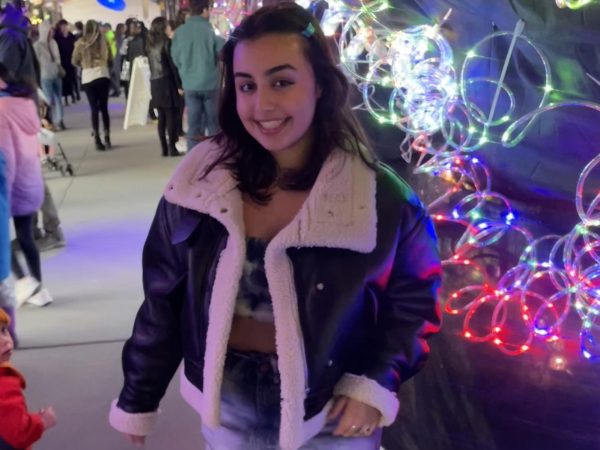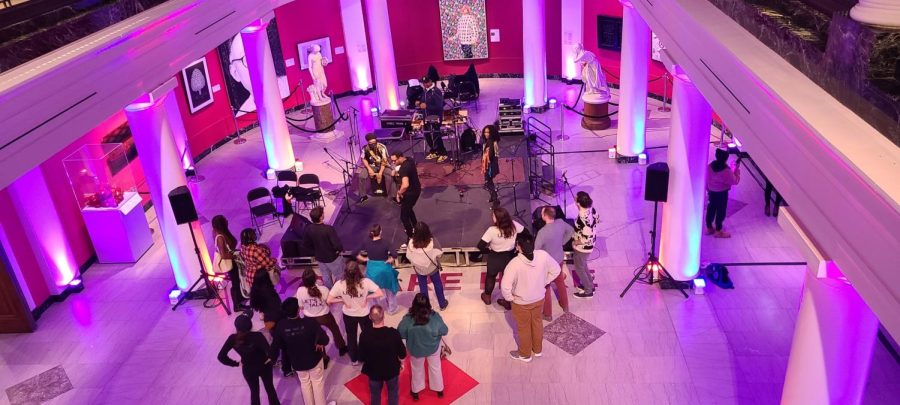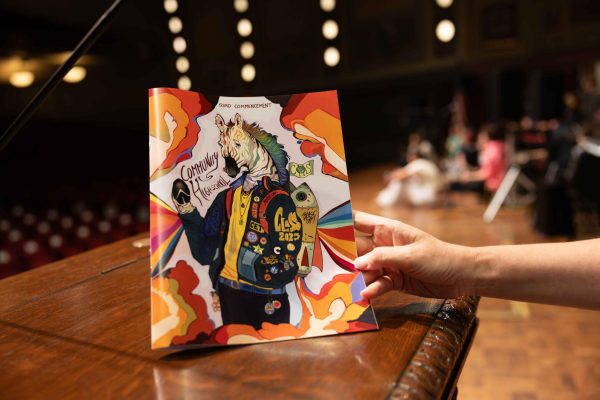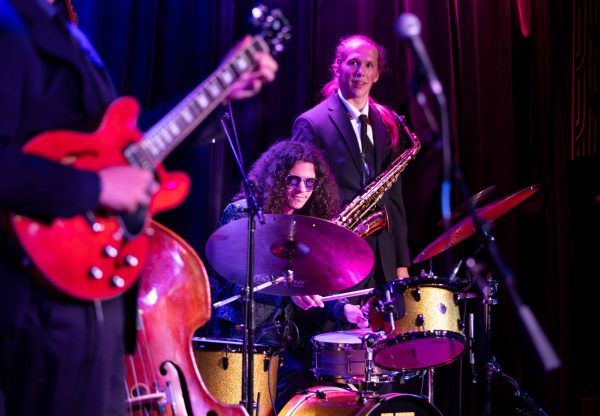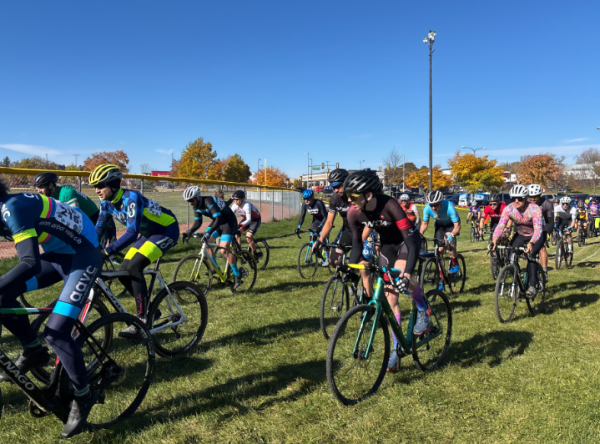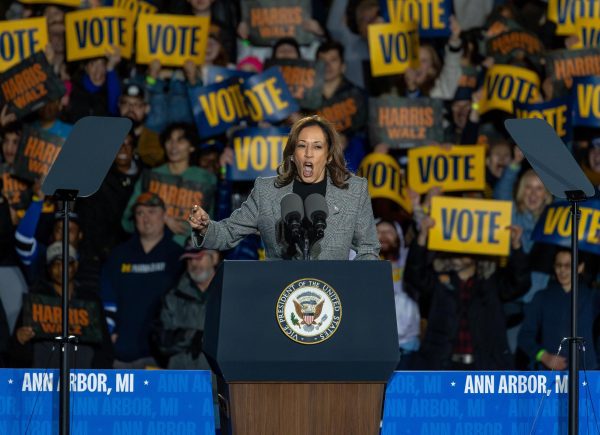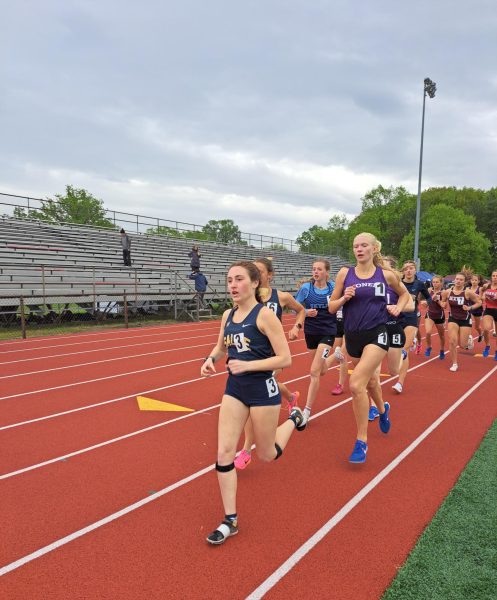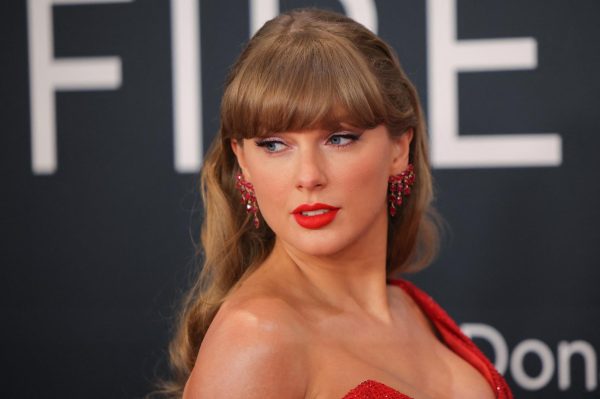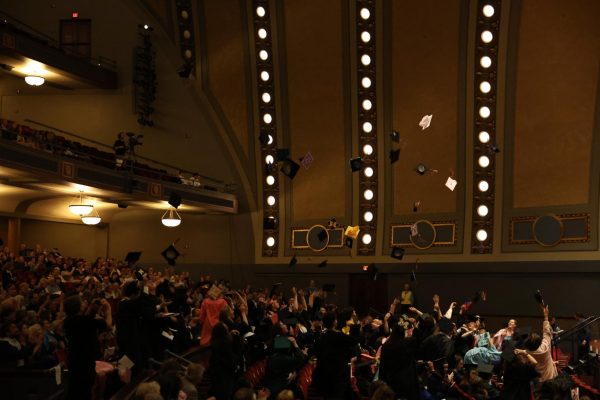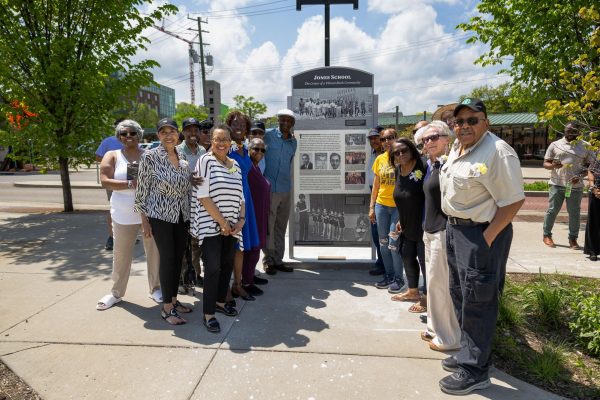Civic Engagement at the UMMA
On Friday, Oct. 15, the University of Michigan Museum of Art (UMMA) held one of their monthly “Feel Good Fridays.” This month’s event featured an installment by Social Sculptor and Cultural Strategist, Phillippa Hughes. Hughes organized a variety of community engagement activities to promote conversations between Ann Arbor residents around topics such as housing inequality and climate change in Michigan. The overall goal of these conversations: preserving democracy.
With the Nov. 8 election day coming up, the UMMA’s voting and registration site has opened; the next step is taking action.
Hughes believes that the key to civic engagement is to get people excited about the issues they are voting on. Hughes believes that having conversations within the community is a more effective call to action than listening to speeches or lectures.
Front and center of this event was a musical performance by the band, Afro Flow. Mike Ellison, an independent artist, founded Afro Flow in the early 2000s to remind people that humanity flows from Africa. Ellison is the vocalist and he uses his lyrics to connect with the audience through call and response. The band also includes a variety of hip-hop-inspired steps for the audience to follow along with. Their music is not structured as a traditional performance; instead, the business strives to use music as a platform for community engagement.
As you advanced up to the second floor, there were opportunities to engage more directly with issues on the ballot this November.
Missy Stults, Sustainability and Innovations Director for the City of Ann Arbor, facilitated conversations around climate change concerns within Ann Arbor. She posed questions such as: ‘What is important to preserve within the city?’ or ‘What parts of Ann Arbor are in danger?’
The larger goal of this activity was to encourage Ann Arbor residents to vote for a 20-year climate change tax proposal (proposal one) appearing on the ballot on Nov. 8. This proposal would help fund resources that can help Ann Arbor achieve carbon neutrality by 2030.
In addition to getting more people out to vote, Stults hopes to use the ideas brought forward by community members to inform decisions she makes as a public employee.
“Climate change impacts lives,” Stults said. “My job is to certainly figure out how we address the climate crisis and adjust in a critical way but that doesn’t matter if people aren’t here. We want to create spaces that are welcoming [where] people see themselves. We want to be a part of [that], so it is always a conversation.”
Another issue that requires action by community members in Ann Arbor is the rate of homelessness within Michigan. Social worker and professor at the University of Michigan, Deidre D.S SENSE Smith, uses her background in hip hop and social work to emphasize the importance of building community. During Smith’s “Feel Good Friday” workshop, attendees were asked to journal about questions related to their sense of home and overall safety such as: what it might be like to live in your car. In addition to this writing activity, Smith projected unnerving statistics about homelessness in Ann Arbor and its surrounding areas on the screen at the front of the room.
These statistics showed how many people go without basic necessities like proper housing, shelter or clothes.
“I have been homeless myself,” Smith said. “I’ve had to pull myself up and climb back up to the top and have people in place that would have helped me to do that. I’m a living testament as to what can be done when you have concerns—and when you voice those concerns in a manner that brings about visibility.”
All of these community engagement activities from the music to the conversations around issues like climate change or homelessness were created in hopes of getting people out to vote. Hughes often has concerns that conversations may not always lead to action. That is why this “Feel Good Friday” worked to engage Ann Arbor residents in issues that directly affect them, so that they will be more likely to show up and vote on this coming election day.
